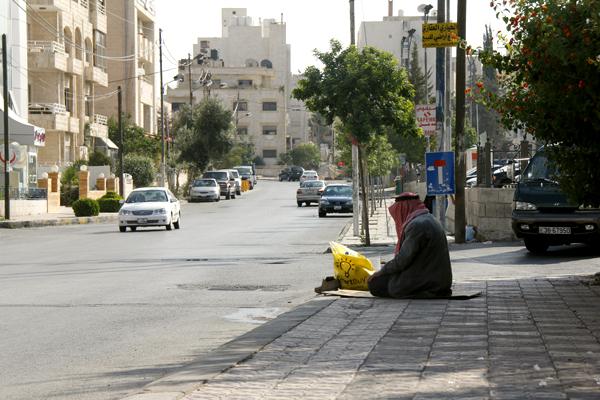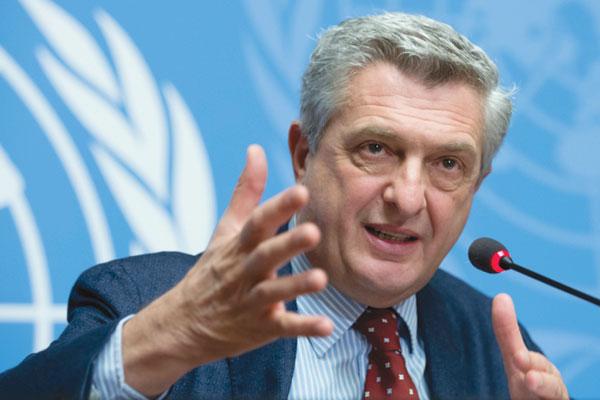You are here
In need of control
Apr 07,2014 - Last updated at Apr 07,2014
It has been a terrible time for Syrians, who have, for three years now, witnessed death and destruction.
Many came to Jordan in search of safe haven.
There are almost a million refugees here, a third of these in United Nation camps. The biggest, Zaatari, has become the sixth biggest city in Jordan.
The UN has done a good job of setting them up, providing them with basic necessities and giving them coupons to get the necessary food.
Other NGOs also offer support to the refugees, but while everyone is happy to be able to alleviate some of their hardships, we fail to see the negative result of this support for the host communities.
Mafraq, a previously small village, has become a large town where the majority are Syrians. The streets of this town are now ruined by the constant passage of heavy trucks that deliver water and food to the camp; waste disposal has been overwhelmed by the large influx of people in the town; hospitals are filled all the time; and the schools work two shifts just to answer to the extra demand.
Syrians have taken many jobs meant for Jordanians for very low wages to supplement their UN support.
Recently, a riot broke in the camp as some families decided to illegally leave the camp to earn a better living and get more of those limited jobs. The brawl led to the injury of 22 policemen and many Syrians.
Food, heaters and even the tents they get from the UN are being sold for extra money. This, however, has put many small Jordanian shops who sell such items out of business.
Medicine that was barely enough to support the Jordanians in the northern villages is now never enough.
Most Jordanians are disgruntled by the decline in the level of education in their schools and the long lines in their clinics to get only a small portion of the medicines they need.
It is a difficult situation, but solutions exist. A work permit for Syrians (like for Egyptians) would help channel the jobs Syrians take into the fields that are needed in Jordan.
For example, there are many skilled Syrian labourers (e.g., carpenters, plumbers) that are badly needed in Jordan and would enrich the Jordanian economy, but taking the few other jobs that Jordanians are desperate for will only bring bad feelings between the two peoples.
The UN can buy health insurance for the refugees so that the Jordanian Ministry of Health gets some funding for the support it gives and has been giving with little international support.
NGOs can help build new schools in the north of Jordan to support the Jordanian government that is struggling to make ends meet after a downturn in the local economy for the last three years as a result of the Arab Spring.
The international community has been quite supportive of Jordan’s role vis-à-vis Syrians, but financial support has been less forthcoming.
Jordanians realise that even if the Syrian crisis is solved in soon, it is unlikely that the refugees will go home in the coming few years. This is built on previous experience with Palestinian and Iraqi refugees who are still in Jordan decades later.
The current situation cannot continue as is.
It is hoped that Jordan’s friends can financially help the country fix its roads and create more jobs for its people.
More importantly, I hope the UN will take heed and play an active role in controlling the refugees in Jordan before more unwanted strife and hardship occur.
Deema I. Alam,
Amman
Related Articles
AMMAN — Almost 15 per cent of the beggars detained by the authorities so far in 2015 are from Syria, Social Development Ministry Spokesperso
AMMAN — Jordan will accelerate the security screening process for 20,000 Syrian refugees in Azraq camp who entered from the no-man's-land ne
AMMAN — Although Jordan appreciates the international support it has received to cover the cost of hosting refugees, the needs far outpace a



















